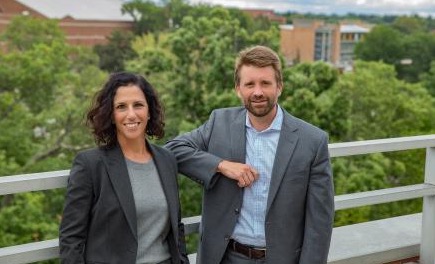The University of Michigan (U-M), Michigan State University (MSU), the Michigan Department of Education, and the Center for Educational Performance and Information recently announced a collaboration called the Michigan Education Research Institute (MERI) — which was created to improve K-12 public schools across the state. And a new Michigan Education Data Center will also facilitate research projects in education.
This collaboration — which is funded in large part by the Laura and John Arnold Foundation — will help drive research projects in education by making data accessible and improving education for students in Michigan. And the partnership will give policy leaders a way to collaborate with national experts.
“I’m excited about the capacity MERI will have to answer questions about the intended and unintended effects of education policies and practices,” said Robert Floden, the dean of MSU’s College of Education. “Important policy areas include charters and choice, assessment of a range of student outcomes and the preparation and employment of teachers and school leaders.”

Katharine Strunk and Joshua Cowen / Photo: Michigan State University College of Education.
Joshua Cowen and Katharine Strunk, faculty co-leaders of the Education Policy Innovation Collaborative (EPIC), are going to lead the research on behalf of MSU.
“We are thrilled to have entered a close research-policymaker partnership with MDE and CEPI,” explained Strunk — who is a Clifford E. Erickson Distinguished Chair in Education. “Through our work, we hope to tackle some of the most pressing questions surfaced by state and local education policymakers and improve education access and outcomes for Michigan students.”
Several key stakeholders representing education leaders and policymakers across the country will be advising the state agencies for setting the research agenda. And one of MERI’s key projects happening early on is to conduct a multi-year implementation study of the state’s Competency-Based Education (CBE). This project include surveys of principals, teachers, students, and site visits at CBE schools.
“The Michigan Department of Education is excited to see this formal research partnership established between the state and the two university partners,” revealed interim State Superintendent Sheila Alles. “Becoming a top 10 education state in 10 years takes a knowledge of what is happening in our schools now, learning what has proven successful and using that to develop better practices for all our educators and students.”
The Michigan Education Data Center — which is going to be housed at the U-M’s Gerald R. Ford School of Public Policy — is going to act as a clearinghouse for educational records that will be provided to researchers while maintaining the privacy rights of students. And the researchers are hoping that the results from the study will help the Michigan Department of Education understand how to meet the needs of schools and districts that are transitioning to competency-based models and also understand successes and obstacles.
Michael Barr, the dean of Ford School of Public Policy at U-M, assured that the university’s faculty “have proven their commitment to applying research to solve education policy challenges, and through MERI will be able to make a big contribution to helping Michigan’s young people.”
Elizabeth Birr Moje, the dean of the U-M School of Education, pointed out that the collaboration will “empower and equip our leaders with the research they need in order to make evidence-based decisions that advance just and equitable learning opportunities, assessments and educational systems for all children in Michigan.” U-M is experienced at hosting local and national datasets. And this new data center is going to carry the tradition forward.
“While ensuring privacy and confidentiality of students’ data, we will be able to learn what works and what doesn’t so our educators can provide the best education for Michigan’s students,” added Susan Dynarski, professor of economics, education and public policy at U-M.


